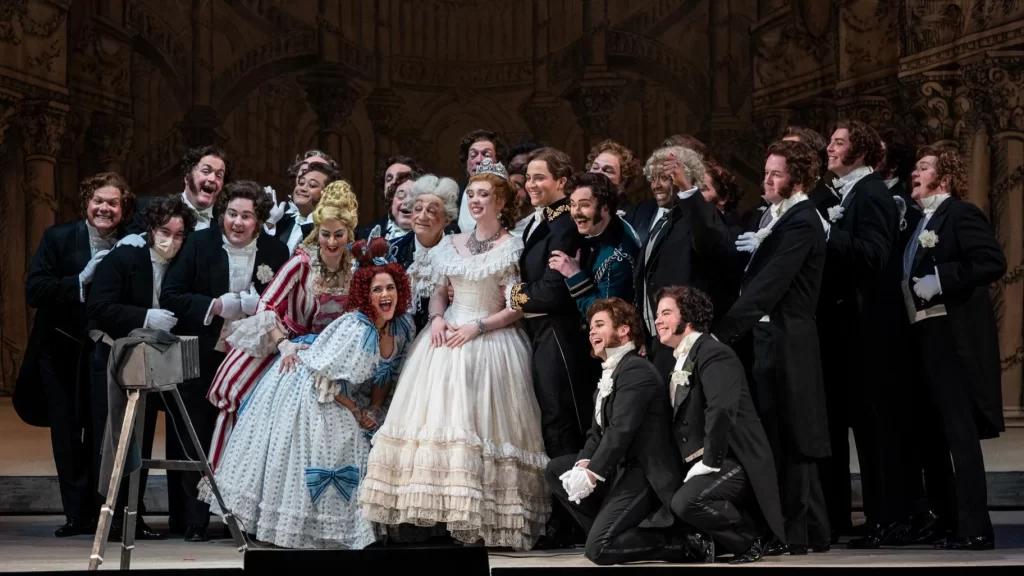
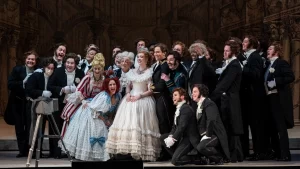 ***** “Cinderella” is one of the quintessential feel-good stories, and of the many versions out there, the comic opera composed by Gioachino Rossini in 1817 (called La Cenerentola) is one of the best-crafted and beloved. The music, which sounds very similar to his success from the previous year, The Barber of Seville, is exuberant, the libretto by Jacopo Ferretti is smart, and the role of Cinderella’s evil stepfather is one of theatre’s greatest buffoons. The production now at the Lyric Opera, a revival directed by Gregory A. Fortner of Jean-Pierre Ponnelle’s staging from 1969, is also expertly crafted. For those who might have concerns about a production whose director died in 1988 and whose leads and conductor are making their Lyric debuts, rest assured that this version of Cinderella remains timeless and is full of new life.
***** “Cinderella” is one of the quintessential feel-good stories, and of the many versions out there, the comic opera composed by Gioachino Rossini in 1817 (called La Cenerentola) is one of the best-crafted and beloved. The music, which sounds very similar to his success from the previous year, The Barber of Seville, is exuberant, the libretto by Jacopo Ferretti is smart, and the role of Cinderella’s evil stepfather is one of theatre’s greatest buffoons. The production now at the Lyric Opera, a revival directed by Gregory A. Fortner of Jean-Pierre Ponnelle’s staging from 1969, is also expertly crafted. For those who might have concerns about a production whose director died in 1988 and whose leads and conductor are making their Lyric debuts, rest assured that this version of Cinderella remains timeless and is full of new life.
The most distinctive thing about Ponnelle’s take is apparent as soon as we get our first look at his set design, which is that the Cinderella character, Angelina (mezzo-soprano Vasilisa Berzhanskaya), is the only one keeping this household together at all. The manor house is a decaying wreck that should be regarded as uninhabitable and the stepsisters Clorinda (soprano Teresa Castillo) and Tisbe (mezzo-soprano Sophia Maekawa) appear to be deluded. The fact that the family is still officially kept on the roll of gentry and therefore included in the survey to consider all possible marital options for a prince who is trying to avoid making a decision is the only reason anyone from the royal court is having contact with them for the first time in years. Alidoro (bass-baritone Nicholas Newton), the prince’s teacher, carries out a test of character on the household by disguising himself as a beggar, and Cinderella passes by offering her own meager rations. There’s no fairy-godmother here, just a very religious older man who serves the prince, not Cinderella.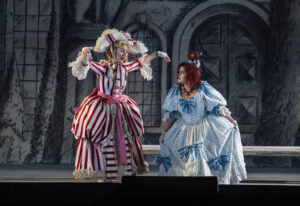
Berzhanskaya as Cinderella and tenor Jack Swanson as the prince, Ramiro, are both likable heroes with stand-out singing moments, albeit mostly in Act II. Baritone Joshua Hopkins also shines in a comic role as the prince’s valet Dandini, whom the prince has asked to switch places with so he may get to know how people behave towards those who see him as merely a person instead of for his status. But there is no doubt the star of the show is baritone Alessandro Corbelli as the stepfather Don Magnifico. Utterly absent is the poise and condescension associated with classic female versions of the character; Don Magnifico is a drunk jerkass and a brazen liar who delights in openly bullying people who aren’t allowed to acknowledge what he’s doing. He’s also cunning and a master of the patter-song, having one in the first act in which he describes a dream he interprets as signifying that he will be raised to a high station, and one in the second in which he fantasizes about how much money he’s going to shakedown state contractors for to grant them access to one of his daughters, the new queen. Corbelli’s swaggering charm makes him the perfect villain; there’s a guilty part of you that sort of wants him to win.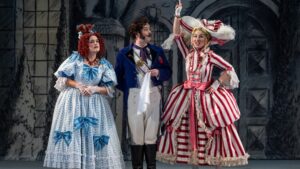
Although Jacopo Ferretti’s libretto removes any explicit magic, it still functions on a sort of fairy-tale logic in which true love and kindness are rewarded. Cinderella goes to the ball so she can spend time with a man she believes is a valet, and the prince believes Don Magnifico’s stepdaughter is dead and the girl he intends to make queen is truly just a servant. Cinderella holds no bitterness in her heart and her stepsisters will have a chance to grow outside of their father’s shadow, but Dandini provides a moral compass with a bit more of an edge. Ponnelle’s set and costumes provide sumptuous spectacle at the palace, including Cinderella’s odd but striking black gown and old-fashioned baroque proscenium arches. With conductor Yi-Chen Lin at the helm, the sweetness and excitement of Rossini’s music makes the run-time fly by while allowing some room for the melancholy moments to get their weight. Cinderella is also a well-enough known story that there isn’t much of a language barrier, and the opera can be a good match for older children. It’s a treat for adults, too.
Cinderella will continue at the Lyric Opera House, 20 N Upper Wacker Drive, Chicago, thru February 10, with the following showtimes:
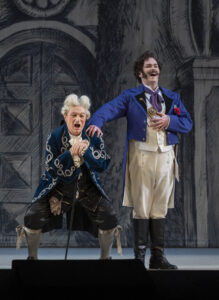 January 30 7:00 pm
January 30 7:00 pm
February 1: 2:00 pm
February 4: 2:00 pm
February 7: 2:00 pm
February 10: 7:30 pm
Running time is three hours and ten minutes with one intermission.
There is also a thirty-minute preview talk an hour before the show.
Performances are in Italian with English supertitles.
Ticket prices start at $41. The Lyric offers parking deals with Poetry Garage at 201 W Madison St. if inquired about in advance. To order, visit LyricOpera.org or call 321-827-5600.
To see what others are saying, visit www.theatreinchicago.com, go to Review Round-Up and click “Cinderella.”



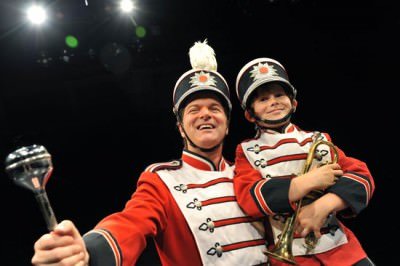
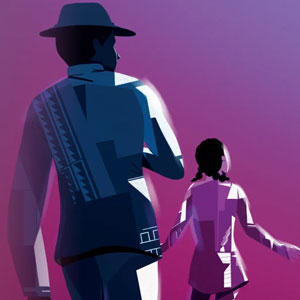
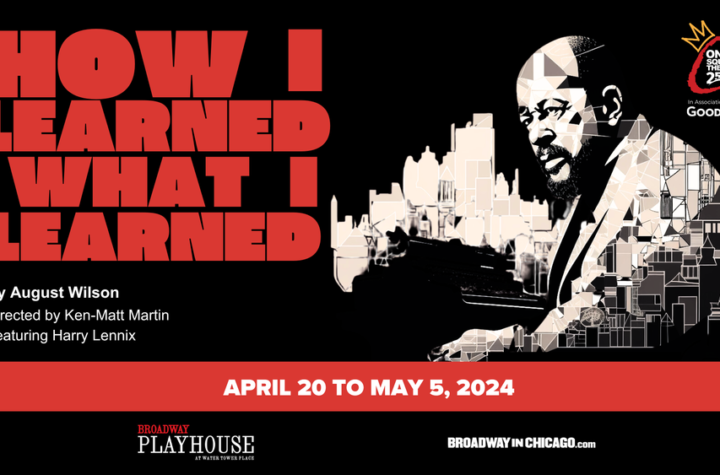
More Stories
“Barefoot in the Park”
“Joe Turner’s Come and Gone”
“How I Learned What I Learned” reviewed by Julia W. Rath